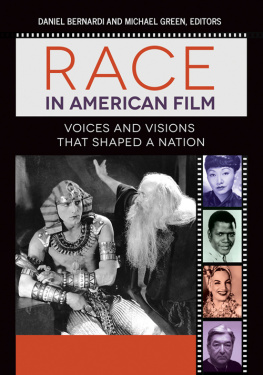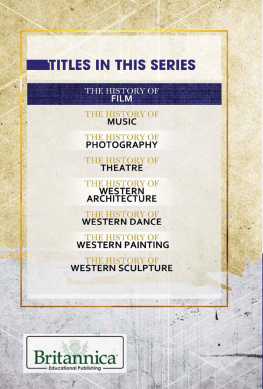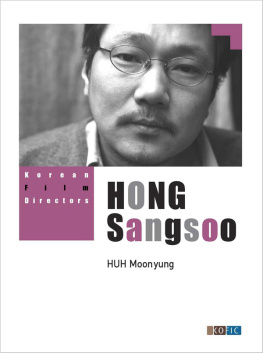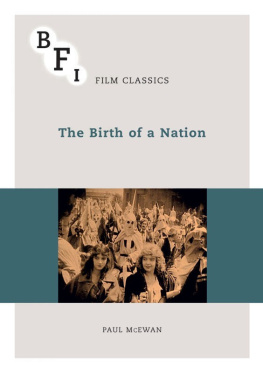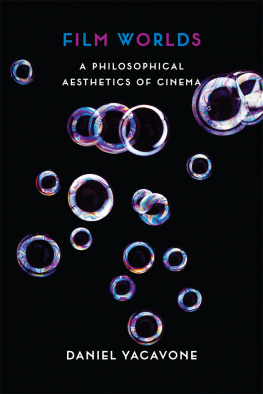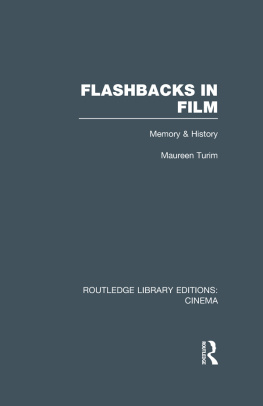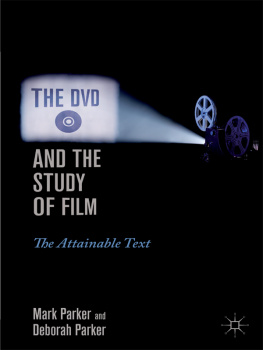CINEMAS ORIGINAL SIN
D. W. Griffith, American Racism, and the Rise of Film Culture
PAUL MCEWAN

UNIVERSITY OF TEXAS PRESS
Austin
Copyright 2022 by the University of Texas Press
All rights reserved
First edition, 2022
Some material related to the film Intolerance in chapters 2, 3, and 4 previously appeared in substantially different form in Paul McEwan, The Legacy of Intolerance, chapter 21 of A Companion to D. W. Griffith, edited by Charlie Keil, John Wiley & Sons, 2018; reproduced with permission of the licensor through PLSclear.
Requests for permission to reproduce material from this work should be sent to:
Permissions
University of Texas Press
P.O. Box 7819
Austin, TX 78713-7819
utpress.utexas.edu/rp-form
Cataloging-in-Publication data is available from the Library of Congress.
LCCN 2022005696
ISBN 978-1-4773-2548-3 (cloth)
ISBN 978-1-4773-2550-6 (PDF)
ISBN 978-1-4773-2551-3 (ePub)
doi:10.7560/325483
CONTENTS
ACKNOWLEDGMENTS
This book began with a question from one of my thesis supervisors, Chuck Kleinhans, during my PhD defense at Northwestern University in 2003. My dissertation was on ideas about the social construction of science and history and the effects of those ideas on film and media studies. I had used The Birth of a Nation in one chapter to make a pointthat film scholars who tended to be social constructivists would never apply that argument to this film, would never claim that it was merely a version of history, or that its distortions were not important. When Chuck asked me what my next book would be about, I said I thought it would be interesting to write a history of the reception of The Birth of a Nation. When I returned to the room to be told that I had passed my defense, all three committee members agreed that this book was a better first book than my dissertation, which was an amorphous and sprawling work whose implied territory was the entire history of epistemology. Thanks to Chuck and Mimi White and Scott Curtis for letting me write that overly ambitious dissertation and for pointing me toward this project.
I have thus been writing about The Birth of a Nation on and off for much of the last eighteen years, and while I am always convinced there is more to say about it, I am grateful to everyone who may not have been so enthusiastic about the topic but encouraged me nevertheless. My friend and graduate school colleague Andrew Douglas has listened to me talk about this film more than anyone else, and has even provided me numerous public venues to talk about it some more. As someone with an intimidating grasp of the scope of American film, his intellectual contributions to this project have been endless.
My colleagues in the media and communication department and film studies program at Muhlenberg, in particular Jeff Pooley, Amy Corbin, and Roberta Meek, have been sounding boards as I tried to work out ideas or pitch chapters. I am grateful to all of my departmental and program colleagues for their support and camaraderie: Aggie Bazaz, Franz Birgel, Michael Buozis, Tom Cartelli, Irene Chien, Francesca Coppa, Beth Corzo-Duchardt, Anthony Dalton, Susan Fredericks, Sue Jansen, Amanda Jenkins-Ford, Susan Kahlenberg, Daniel Leisawitz, Linda Miller, Elizabeth Nathanson, Kate Ranieri, David Romberg, Harry Simn Salazar, John Sullivan, David Tafler, Lora Taub, and Sara Vignieri. In addition, my students at Muhlenberg College have heard me lecture on this film a bit more than they probably needed to, and their reactions to the film have shaped this book.
Almost all of this book was presented in chapters over the years at conferences of the Society for Cinema and Media Studies, and I am grateful to co-panelists and attendees who asked insightful questions and provided encouragement. Much of what I know about the context for D. W. Griffiths work and silent cinema I have learned through my annual attendance at the Pordenone Silent Film Festival, particularly from the multiyear Griffith Project organized by Paolo Cherchai Usai. I have also learned a lot from my festival friends, who have shared their expertise and wisdom over the years: Julie Turnock, Allison Whitney, Allyson Field, Dan Morgan, Laura Horak, Gunnar Iversen, Sarah Keller, Tom Gunning, Joshua Yumibe, Katharina Loew, Caitlin McGrath, Oliver Gaycken, Christina Petersen, Doron Galli, Maggie Hennefeld, Joshua Malitsky, Theresa Scandiffio, Sara Levavy, Joel Westerdale, Matt Hauske, Tami Williams, Brigitta Wagner, Jenny Horne, Albert Steg, April Miller, Kaveh Askari, Lilya Kaganovsky, Rob Rushing, Brenda Austin-Smith, Bill Beard, and Donald Crafton. Any scholar would be blessed to have an intellectual community this rich, and I am doubly blessed to count these impressive people as my friends.
I have saved countless months of archival work because of the availability of The Lantern, a website hosted by the University of Wisconsin that offers searchable early film magazines. The Lantern has been led by Eric Hoyt, who was an undergraduate student at Northwestern when I was a graduate TA there years ago. Eric and his colleagues have done more for silent film research than almost anyone else in recent years, and I am eternally grateful to them. I know I am not the only one.
Film historians will also know how fortunate we are to have the staff of the Library of Congress Moving Image Section, under the direction of Mike Mashon. I spent fruitful time there watching 16mm prints of The Birth of a Nation and learning how the film had changed over time. I am also deeply grateful to David Fortin and the staff of the Cinmathque qubcoise in Montreal, whose rich clippings files helped me shape this book, and who were extraordinarily helpful and kind.
Several scholars whose work I deeply admire provided encouragement and feedback at crucial moments. Jane Gaines regularly inquired about my progress and provided benevolent approval when I dearly needed it. Charlie Keil invited me to be part of a Griffith anthology and provided thoughtful feedback on my writing. Thomas Doherty has repeatedly been an encouraging sounding board and provider of details from his encyclopedic knowledge of Hollywood history.
I owe a debt far more than the usual to Haidee Wasson, who opened her files on the Museum of Modern Art to me, allowing me to benefit in an afternoon from archival work that had taken her a year. It was those documents that convinced me that the story of films journey from low culture to high was the ideal frame for this book, so it might not have been possible without her.
I had originally intended this book to be a history of controversy, and then Melvyn Stokess excellent book appeared in 2008. Melvyn and I have since become friends and collaborators, and I am grateful for his many insights. The conference that he organized on the centenary of the film in 2015 taught me much about the films international reception.
I am grateful to both DJ Spooky (Paul Miller) and Christopher Harris for sharing their artistic responses to The Birth of a Nation with me and for being patient and thoughtful with my questions.
I owe a deep debt to my editor at the University of Texas Press, Jim Burr, who has supportively and patiently guided this project for several years. In addition, Sarah McGavick; Joel Pinckney; Gianna LaMorte; Robert Kimzey; Lynne Ferguson; Angelica Lopez-Torres; Bailey Morrison; and my talented copy editor, John Brenner, have all helped make this project better than it would have been without their help. Thanks are due as well to my indexer, Leigh Priest.


